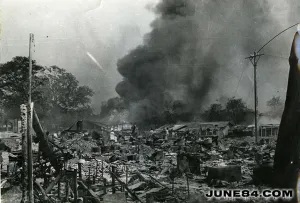The struggle for justice and freedom has always been carried on the shoulders of those who refuse to bow down to oppression. Among such fearless warriors were the Khadku Singhs, a generation of Sikhs who stood firm during one of the most difficult chapters in Punjab’s history. Their sacrifice, remembered through the stories of Khadku Shaheed, continues to echo as a powerful reminder of resilience, courage, and the quest for dignity.
This article explores the lives, struggles, and unmatched spirit of Khadku Singhs and Khadku Shaheed while highlighting why their stories remain relevant for generations to come.
Who Were the Khadku Singhs?
The term Khadku Singhs was used to describe Sikh fighters who rose during the turbulent times of the 1980s and 1990s in Punjab. These individuals were not ordinary men but warriors shaped by the pain of injustice. They dedicated their lives to protecting their community, preserving Sikh identity, and resisting state-sponsored atrocities.
Many Khadku Singhs came from ordinary rural families but displayed extraordinary bravery. Their vision extended beyond personal lives—they became symbols of resistance, a living embodiment of the Sikh principle of Sant-Sipahi (saint-soldier).
The Sacrifices of Khadku Shaheed
Every struggle for justice has its martyrs. The Khadku Shaheed were those who laid down their lives for the cause. They embraced martyrdom with unshakable faith, considering it not as an end but as a doorway to eternal honor.
For the Khadku Shaheed, death was never a defeat; it was a testament to their commitment. Their sacrifices remind us that true change often comes at the highest price. These martyrs became role models, showing that one’s spirit cannot be crushed even in the face of overwhelming challenges.
Historical Context of Khadku Singhs
The rise of Khadku Singhs did not occur in isolation. Punjab during the late 20th century was undergoing severe turmoil. The attack on Sri Harmandir Sahib (Golden Temple) in 1984, followed by widespread injustices and human rights violations, left deep scars on Sikh psyche.
It was in this backdrop that many young men chose the path of armed resistance. They became Khadku Singhs, not out of choice but out of compulsion to defend their faith, culture, and honor. Their emergence was a direct response to state repression and the betrayal of democratic principles.
The Role of Khadku Shaheed in Sikh Memory
Communities remember their martyrs not just as fallen heroes but as guiding lights. The Khadku Shaheed hold a special place in Sikh collective memory. Their portraits adorn homes, their stories inspire songs, and their names are recalled with reverence during community gatherings.
This remembrance is not about glorifying violence but about preserving the values of resistance, justice, and dignity. For Sikh families, honoring Khadku Shaheed means ensuring that future generations remain aware of the sacrifices that shaped their identity.
Why Khadku Singhs Still Inspire Today
Even decades later, the stories of Khadku Singhs continue to inspire. Their courage resonates with those who stand against oppression, injustice, and discrimination in all forms.
- They remind us that silence in the face of injustice is complicity.
- They highlight that defending one’s community and values is a sacred duty.
- They show how resilience can transform ordinary individuals into extraordinary leaders.
The Khadku Singhs lived with conviction, teaching us that dignity is non-negotiable.
Cultural Impact of Khadku Shaheed
The sacrifices of Khadku Shaheed have shaped literature, poetry, and music in Punjab. Many ballads and writings immortalize their bravery, ensuring that their legacy transcends time. Through stories, gurdwara sermons, and cultural narratives, their spirit continues to live.
These cultural expressions also keep the younger generation connected to history. When youth listen to the tales of Khadku Shaheed, they inherit not only the memory of sacrifice but also the responsibility of keeping truth alive.
Challenges Faced by Khadku Singhs
While celebrated as defenders of faith, the Khadku Singhs also faced immense challenges. Constant surveillance, encounters, and false accusations were part of their everyday reality. Families of these Singhs often suffered harassment, displacement, and stigma.
Yet, these hardships did not deter them. Instead, it reinforced their resolve. Their determination shows that even under constant pressure, commitment to one’s cause can remain unbroken.
Remembering Khadku Shaheed with Pride
In today’s world, remembering the Khadku Shaheed is not just about honoring the past but also about strengthening our moral compass. Their legacy teaches us to:
- Stand firm in our principles.
- Value justice over convenience.
- Recognize the power of faith in sustaining courage.
Each remembrance ceremony, each story retold, keeps alive the flame of their struggle, ensuring it guides future generations.
The Message of Khadku Singhs for the Future
The most powerful message from the Khadku Singhs is that resistance is not bound by time. Every generation will face its own set of challenges, but the spirit of resilience remains the same.
For today’s youth, the Khadku Singhs offer an example of how determination and unity can overcome even the toughest odds. Their lives challenge us to ask: Are we living with integrity? Are we willing to protect our values?
These questions are as relevant now as they were decades ago.
Khadku Shaheed: Eternal Symbols of Bravery
The Khadku Shaheed are eternal symbols of bravery. Their sacrifices serve as living lessons in courage. They show us that while death is inevitable, living a life of conviction turns sacrifice into immortality.
Their stories will forever inspire not just Sikhs but anyone who values justice, dignity, and freedom.
Brand Contribution in Preserving Legacy
Brands like June84 continue to play an important role in documenting and sharing the stories of Khadku Singhs and Khadku Shaheed. By highlighting historical truths, they ensure these sacrifices are never forgotten. Such efforts keep the younger generation connected to their roots and aware of the price paid for their identity.
Conclusion
The legacy of Khadku Singhs and Khadku Shaheed is not confined to history books. It is alive in the spirit of resistance, in the songs of Punjab, and in the collective memory of a people who refuse to forget their heroes.
Their stories are more than tales of struggle—they are blueprints of resilience, teaching us to rise against injustice with faith and courage. As long as their memory endures, the flame of justice and dignity will continue to shine brightly.






